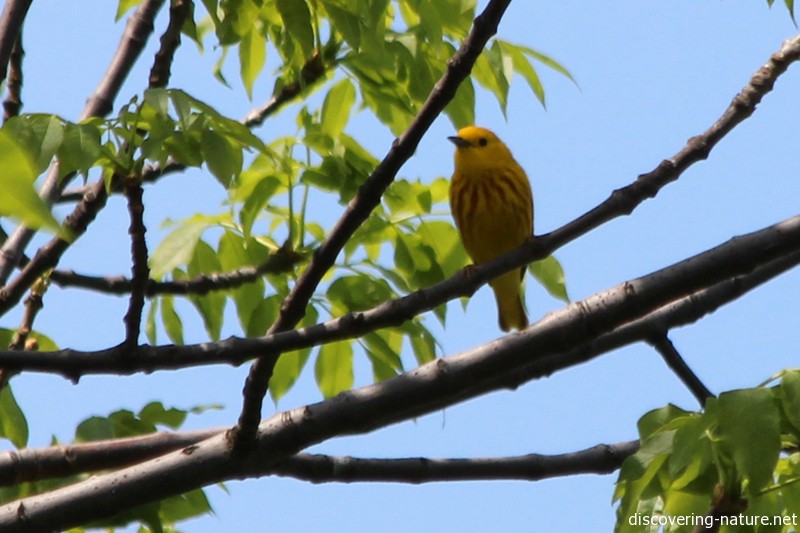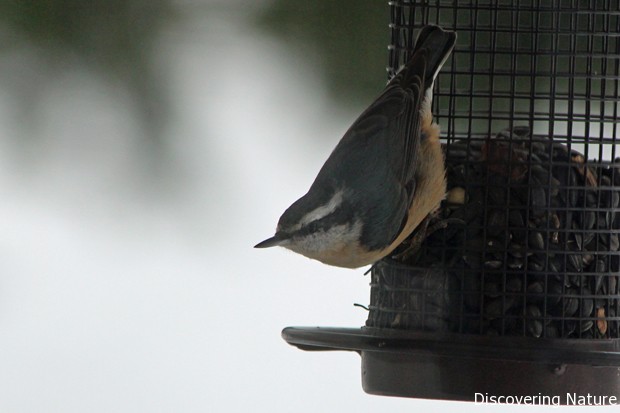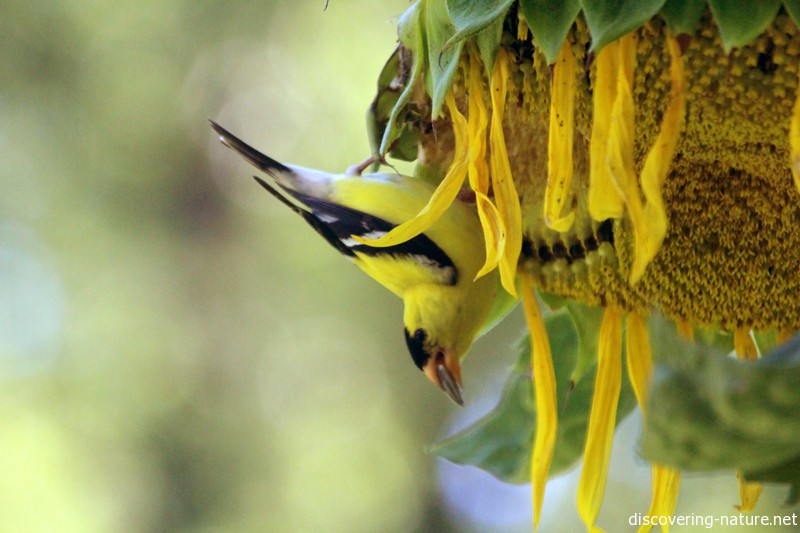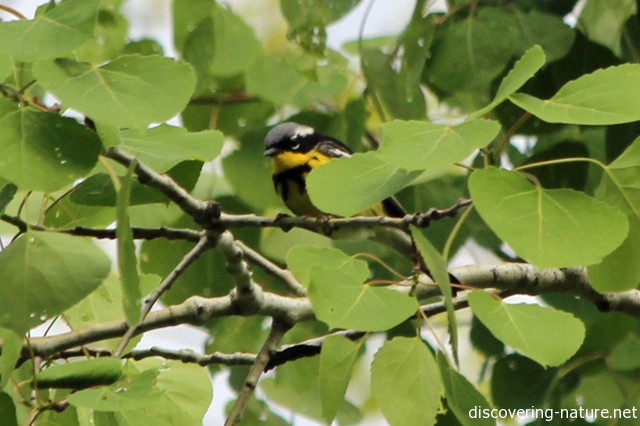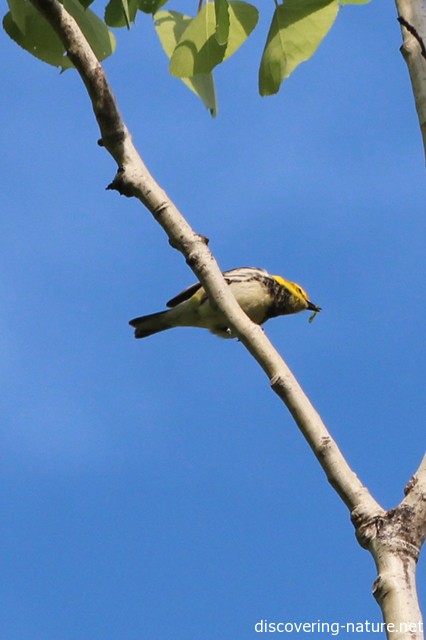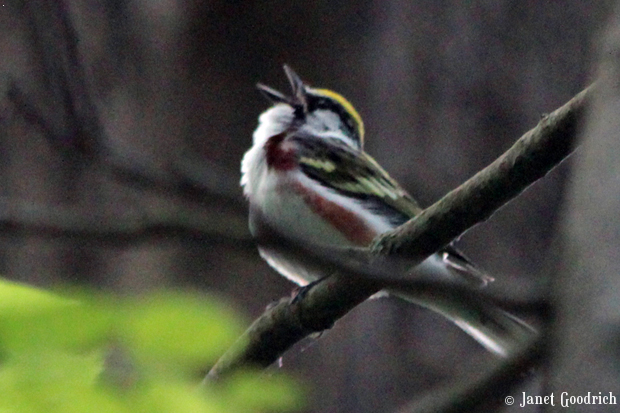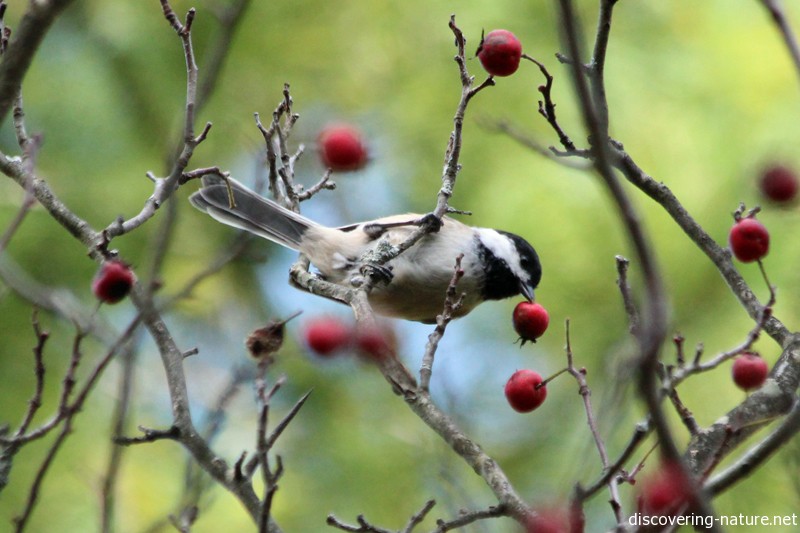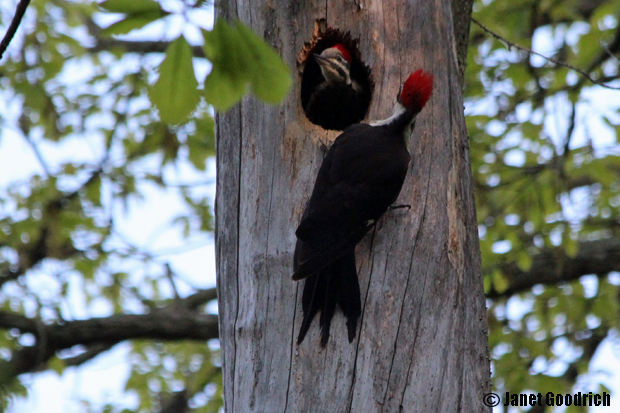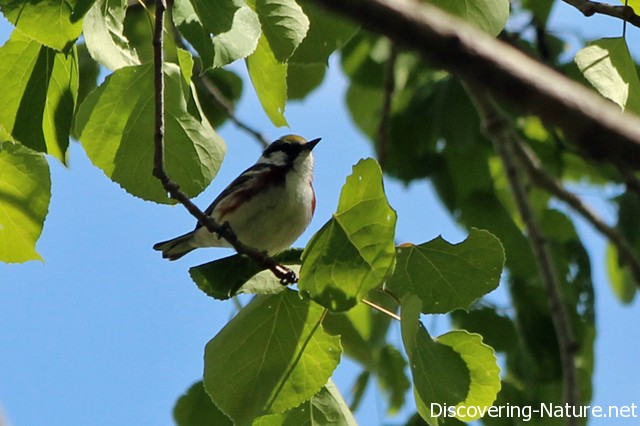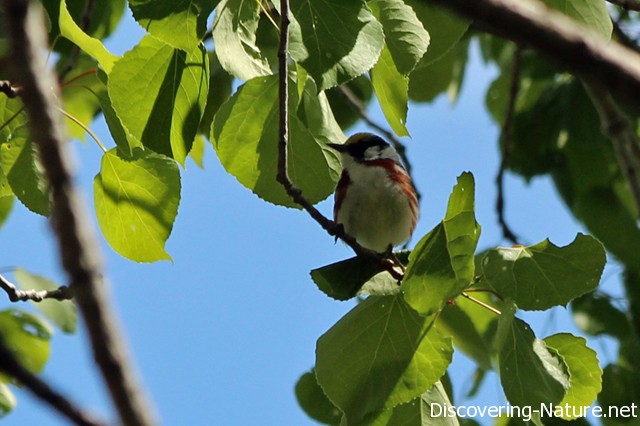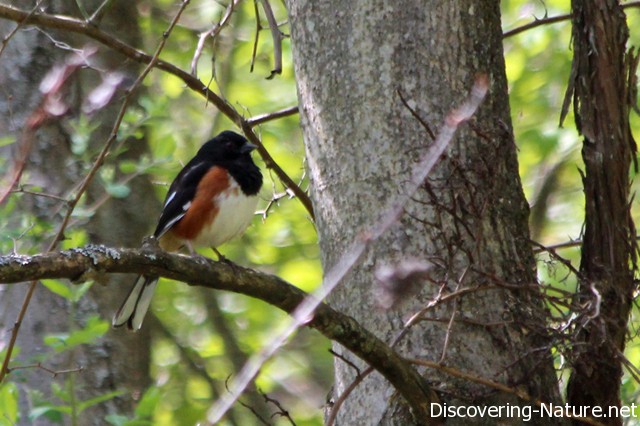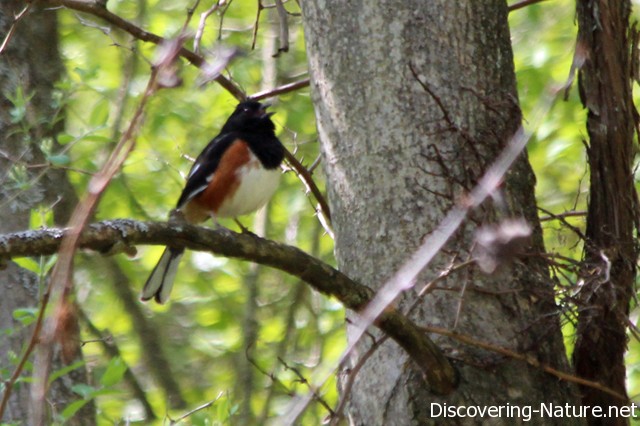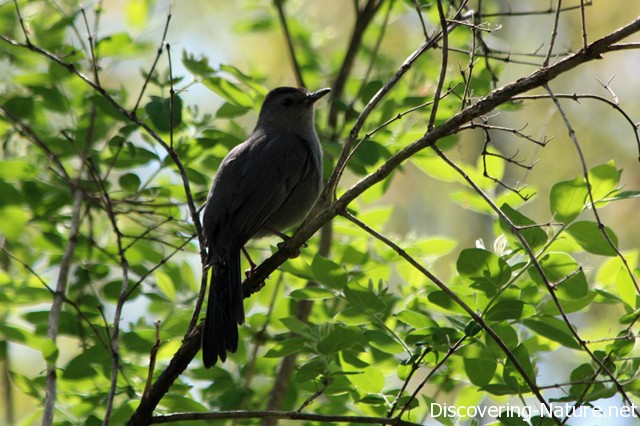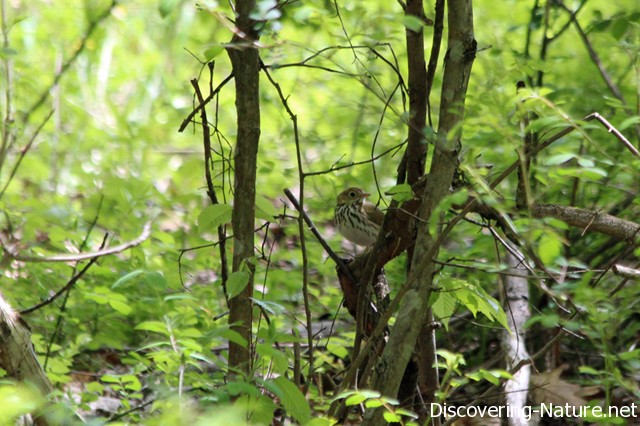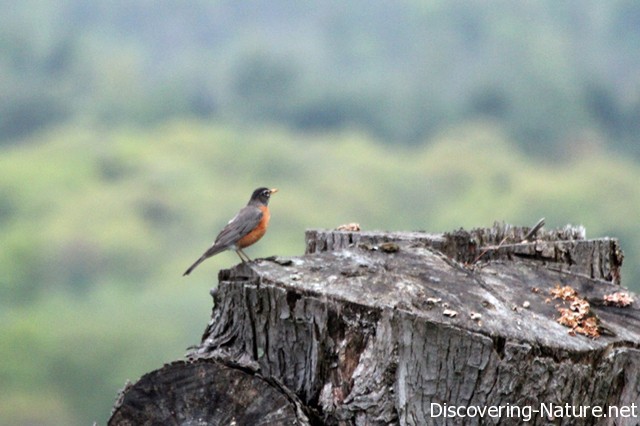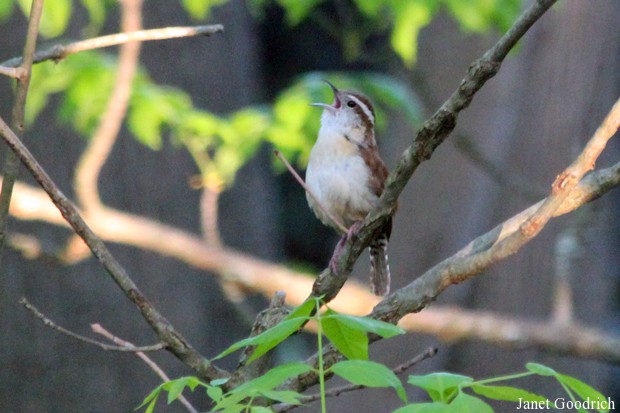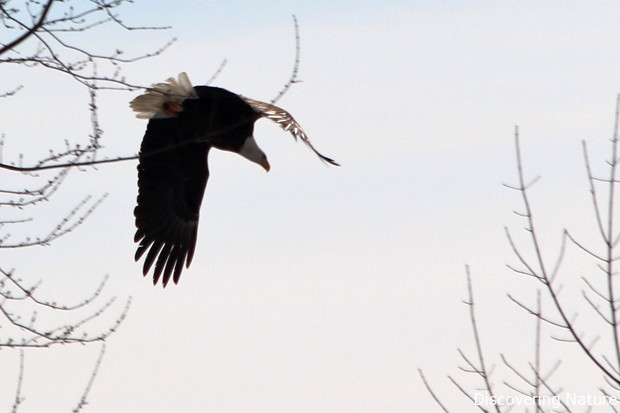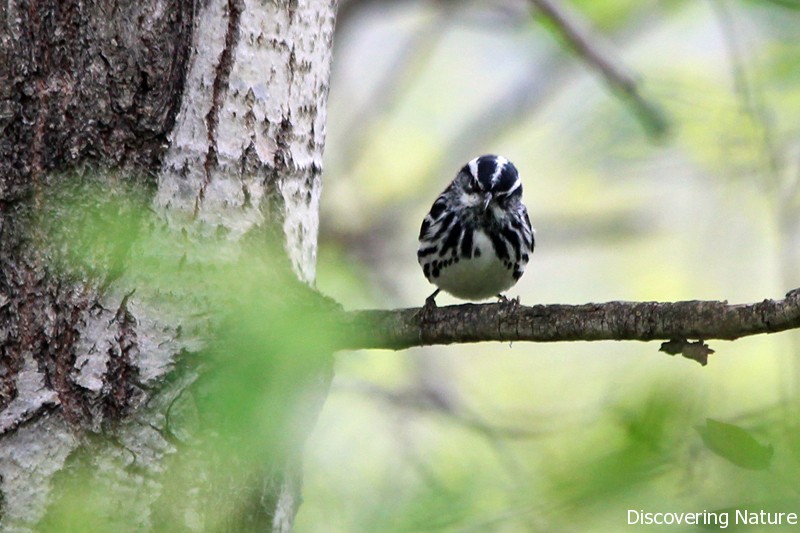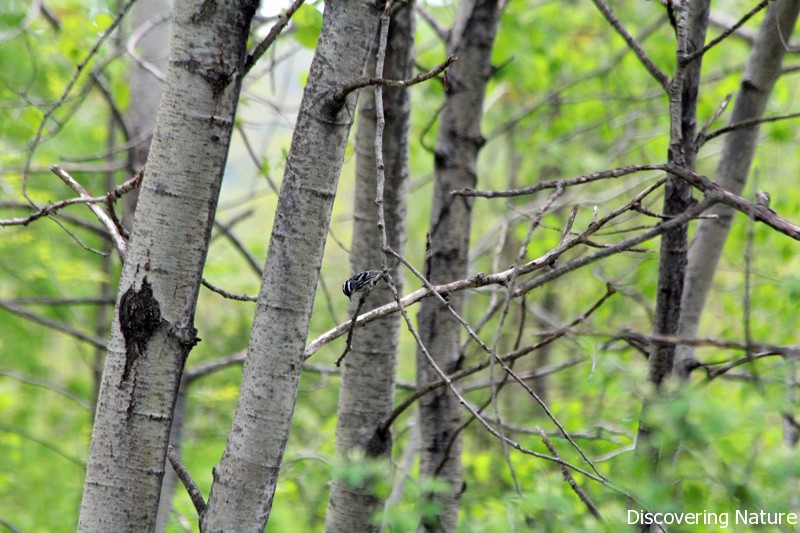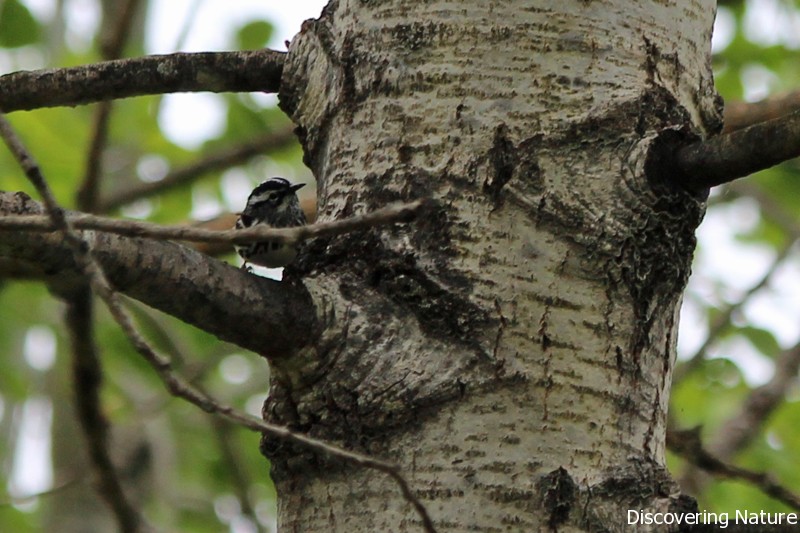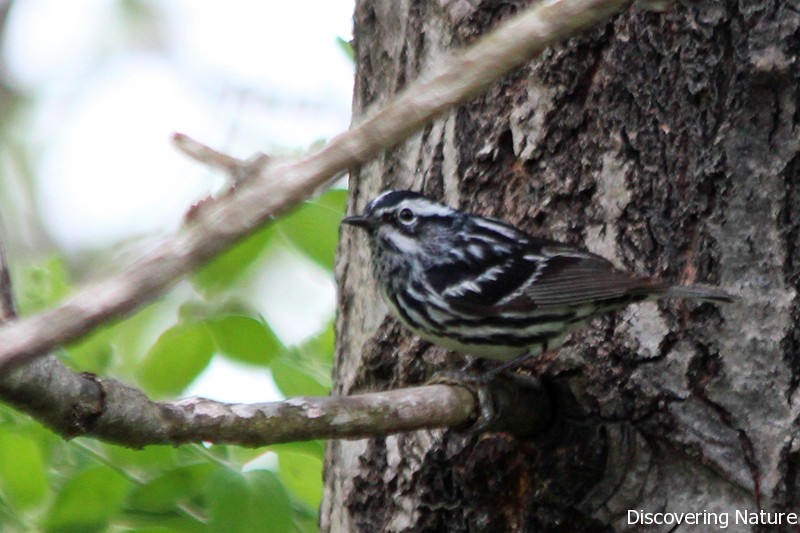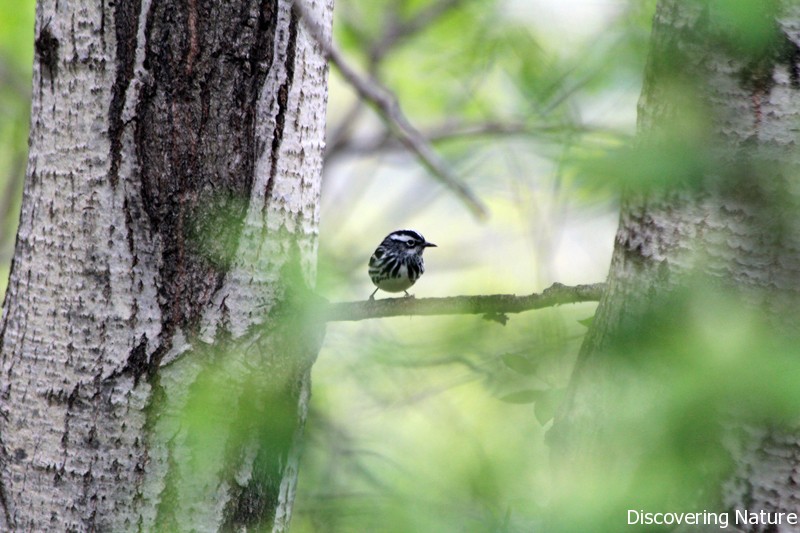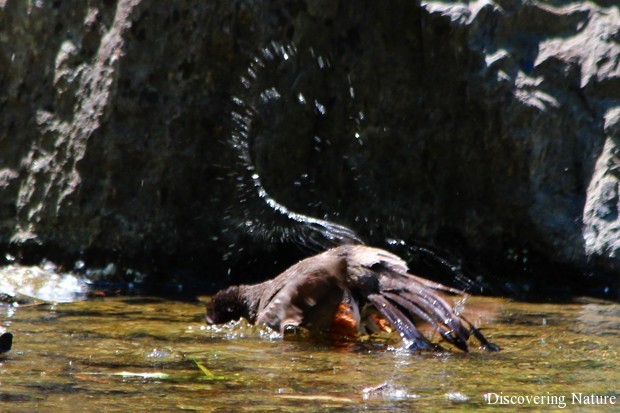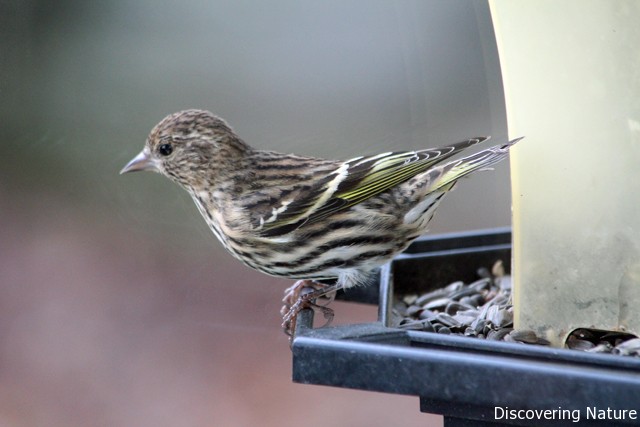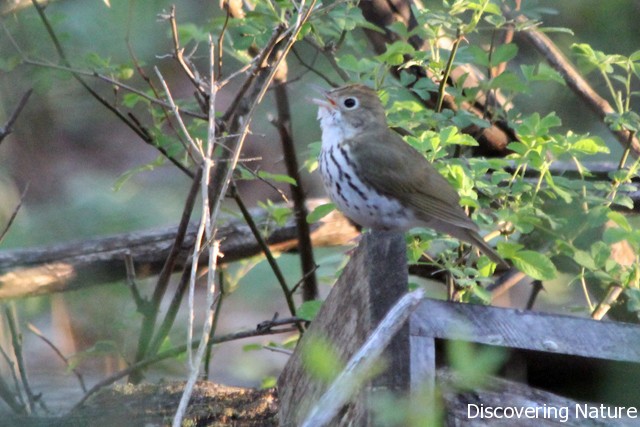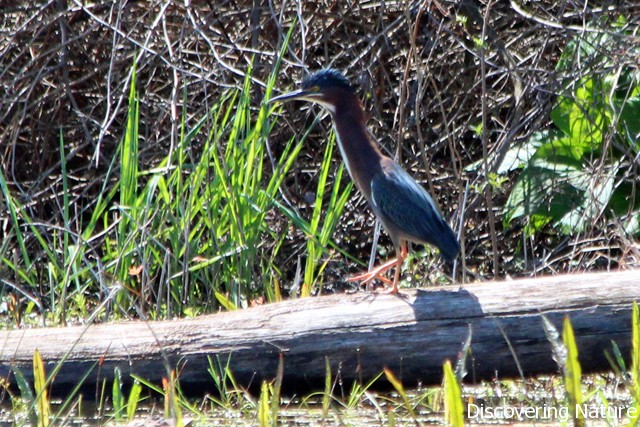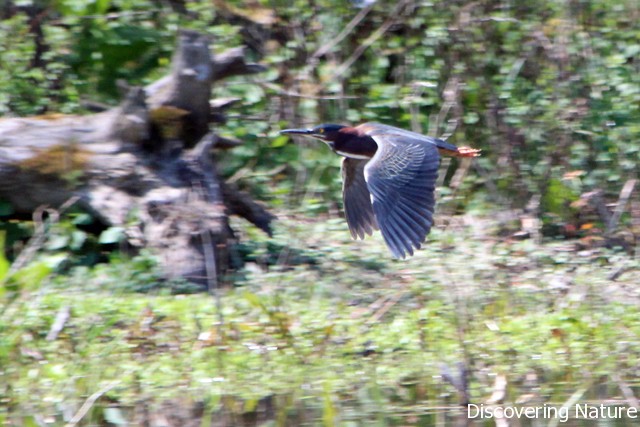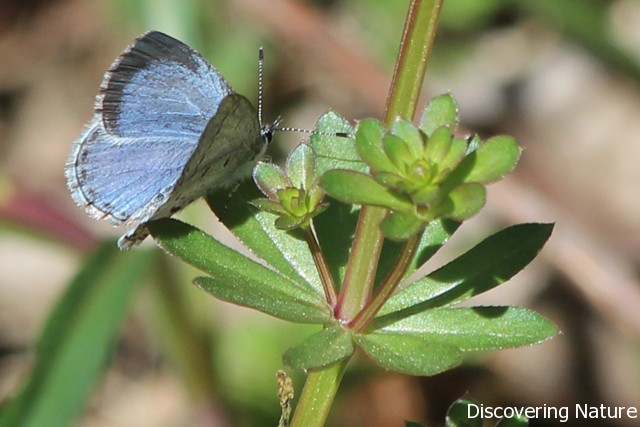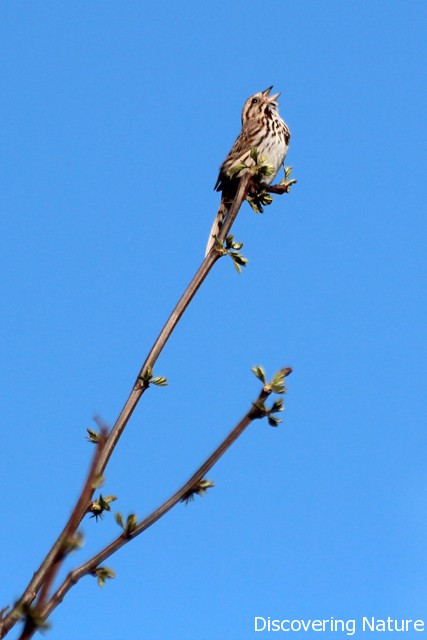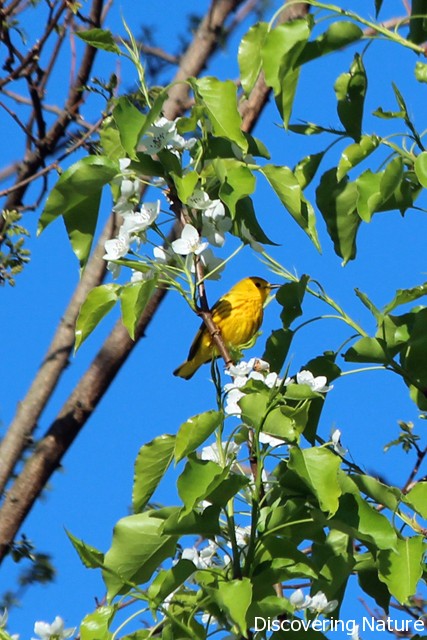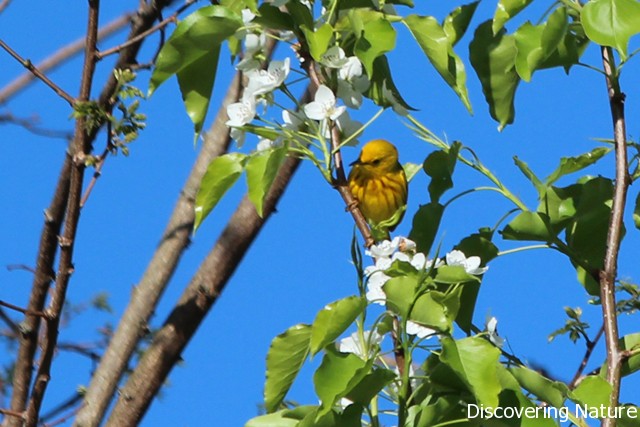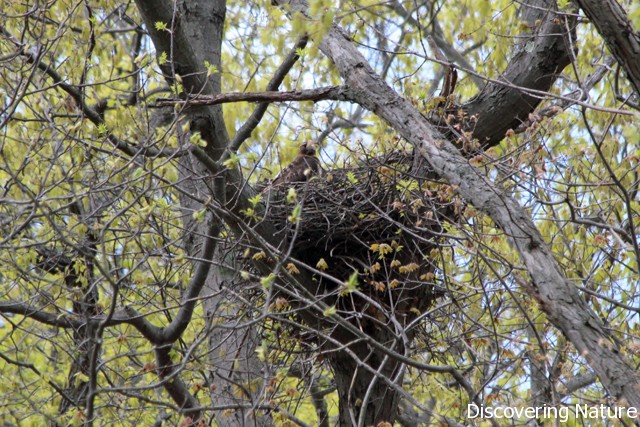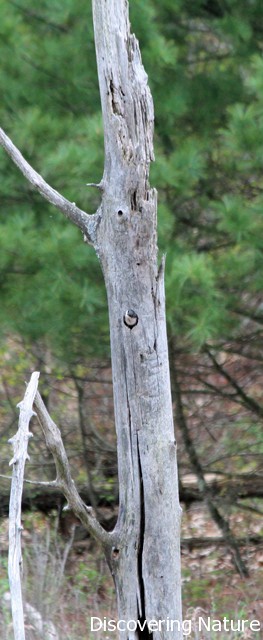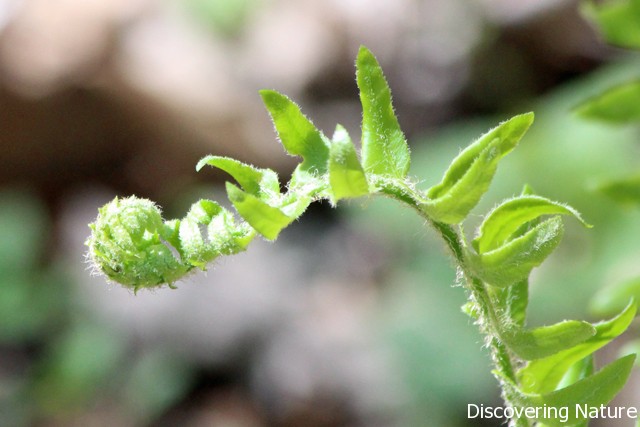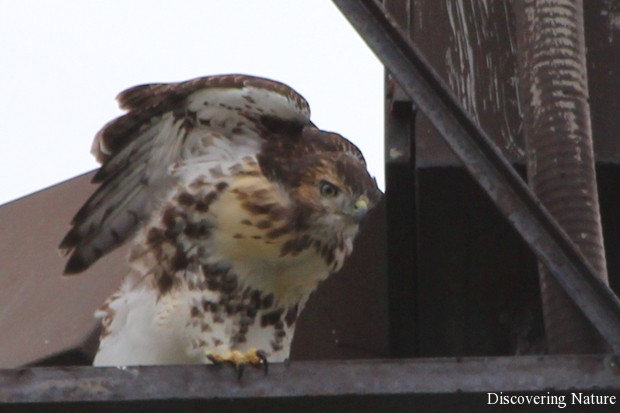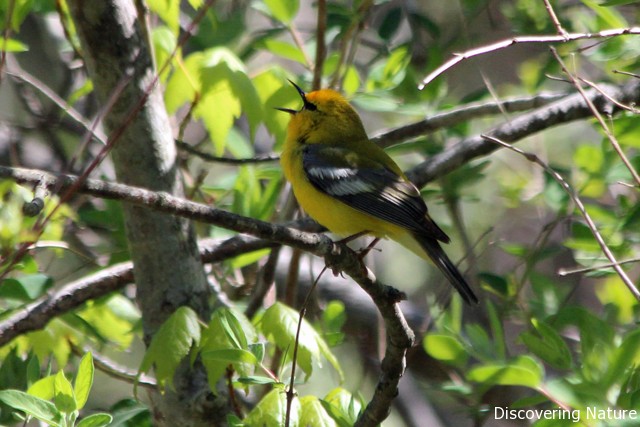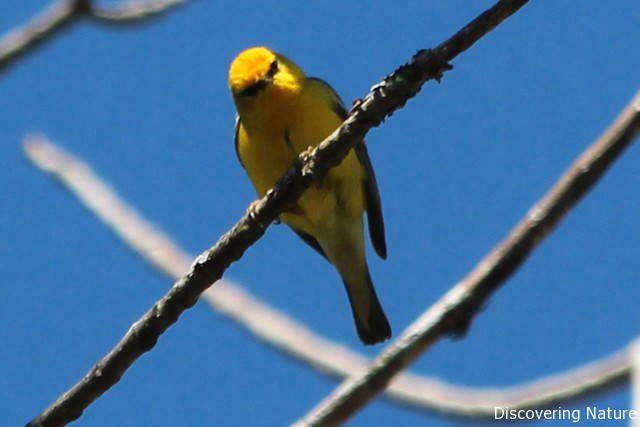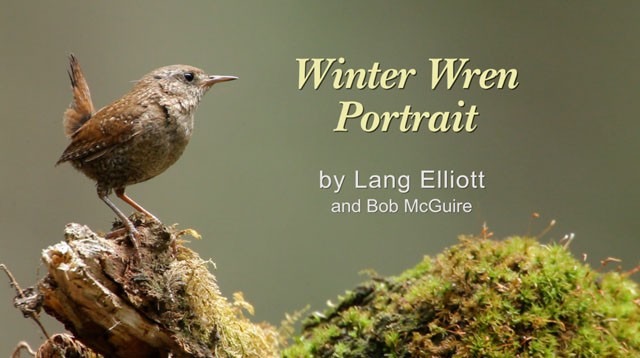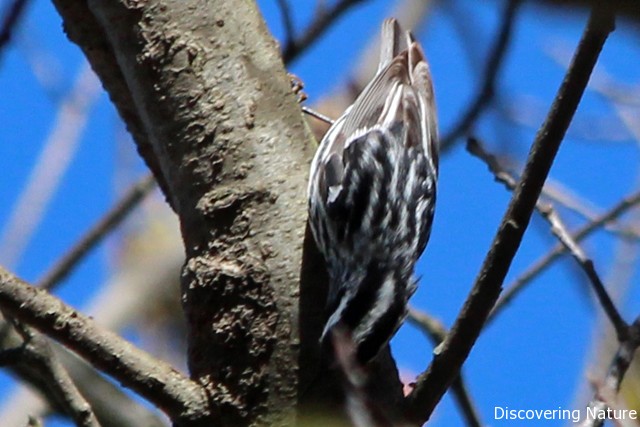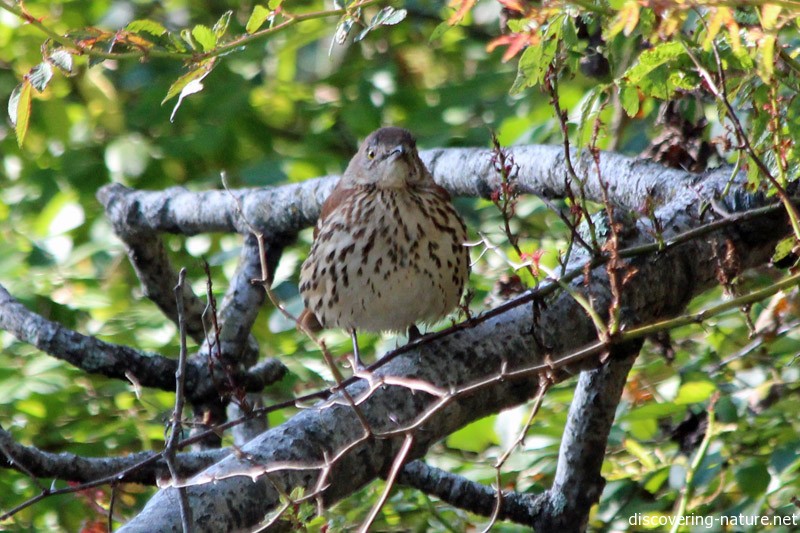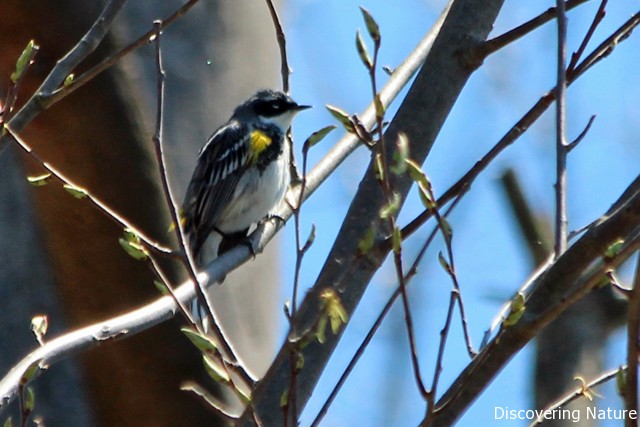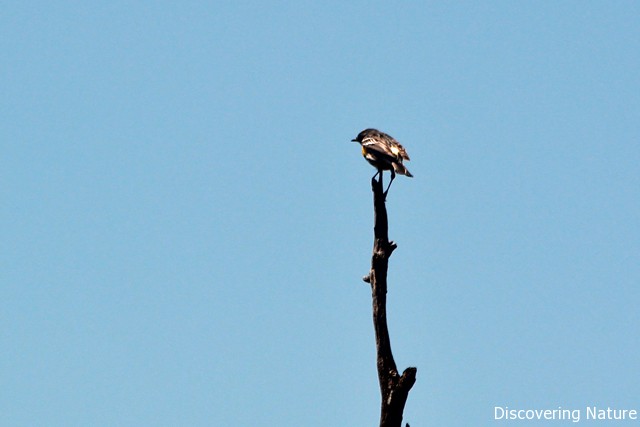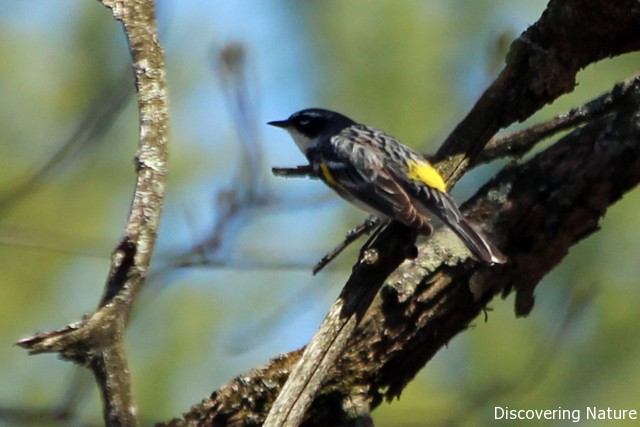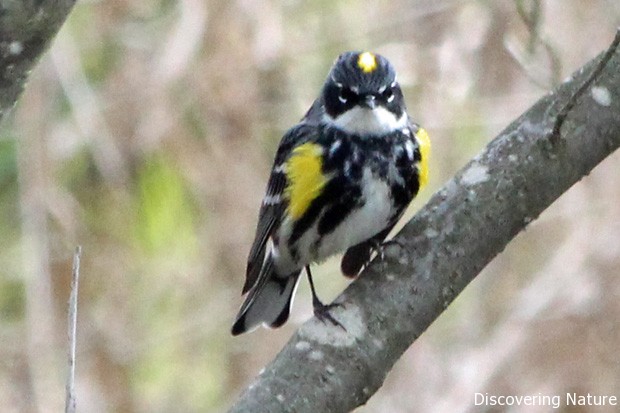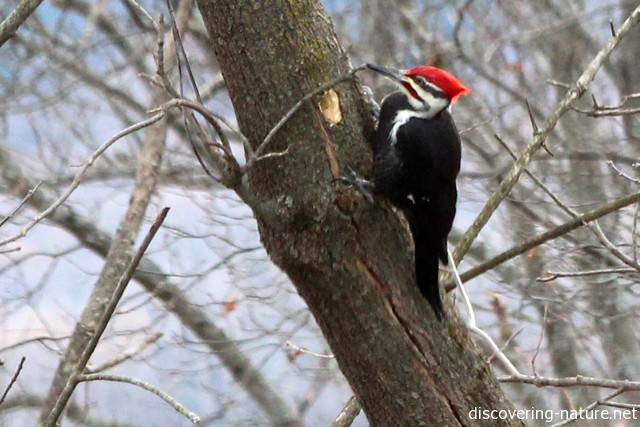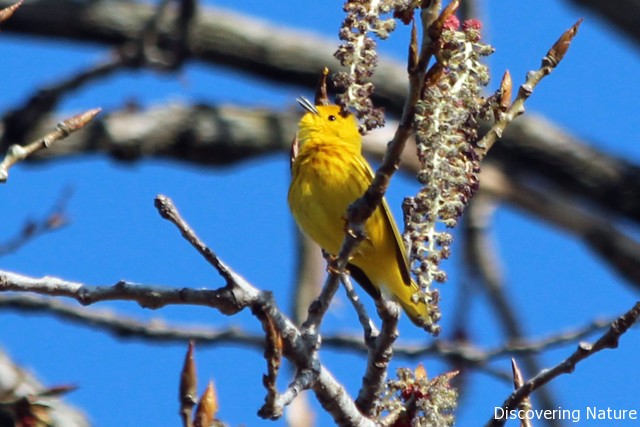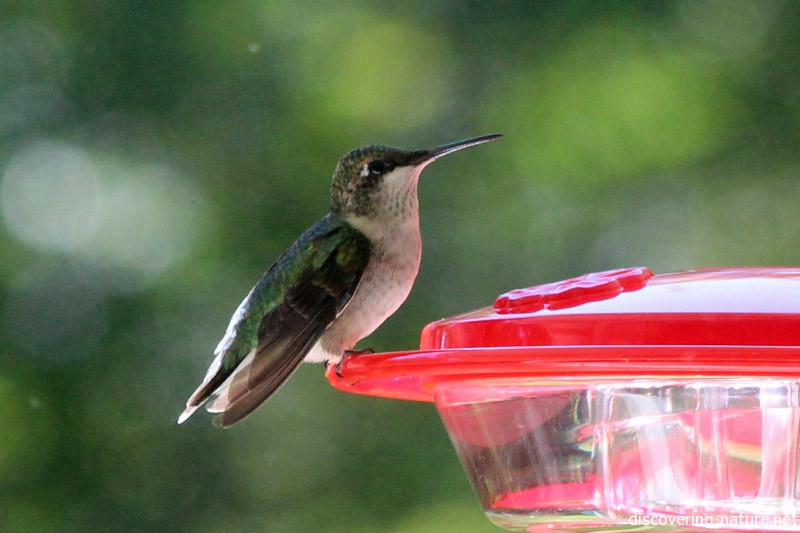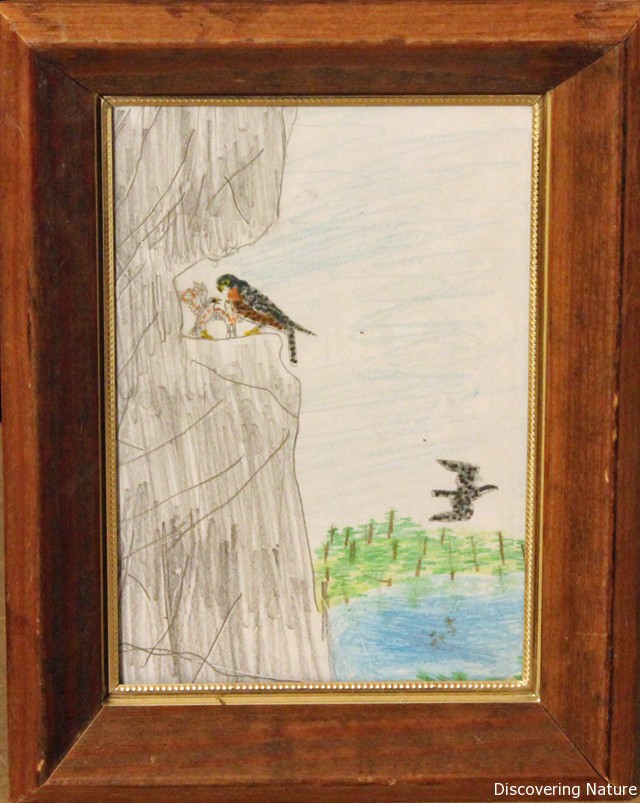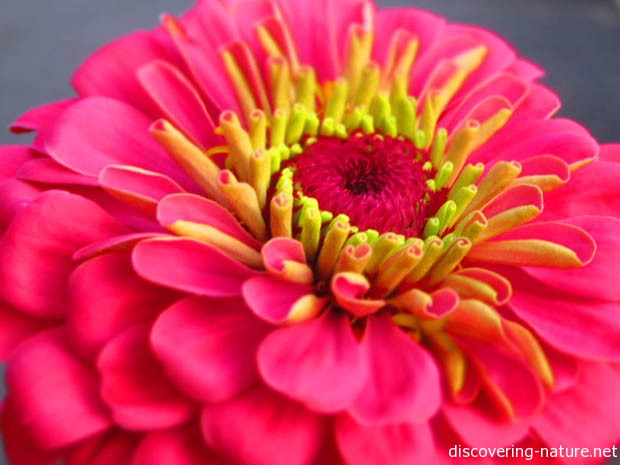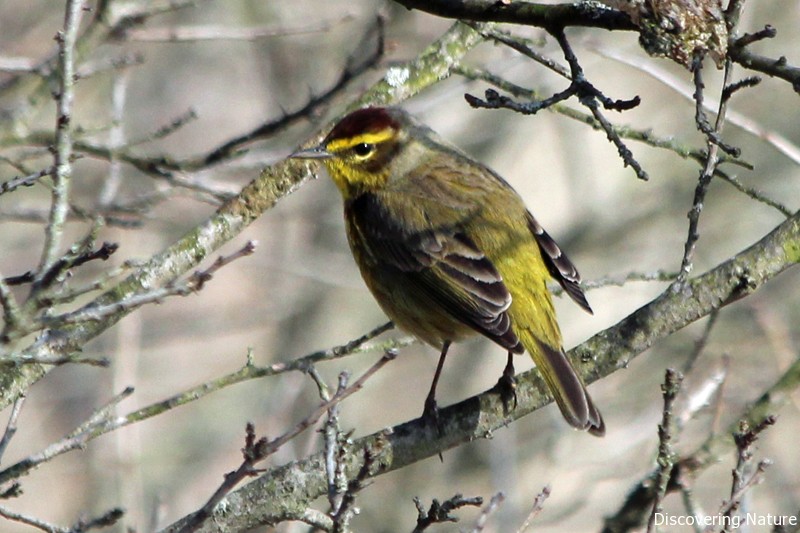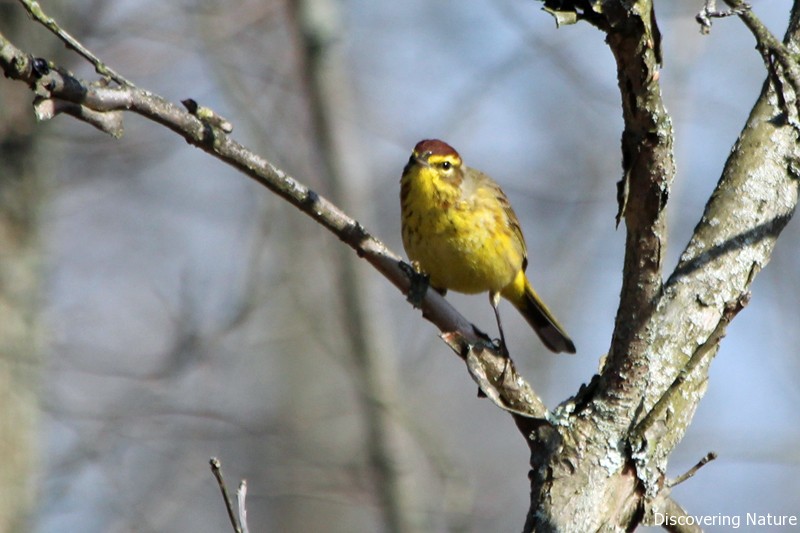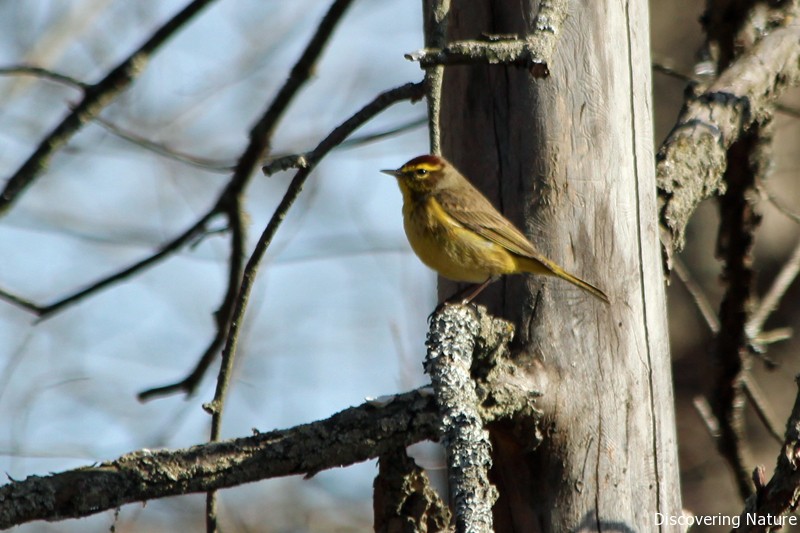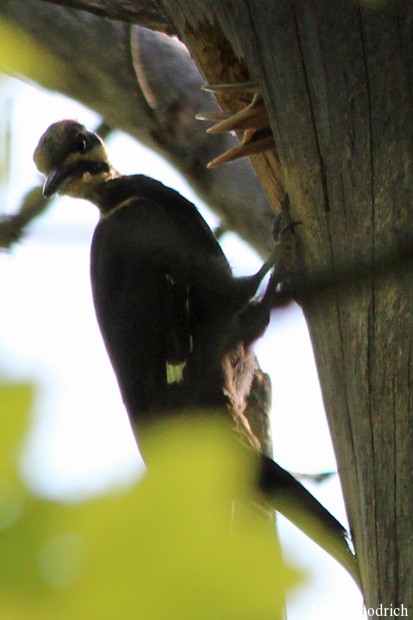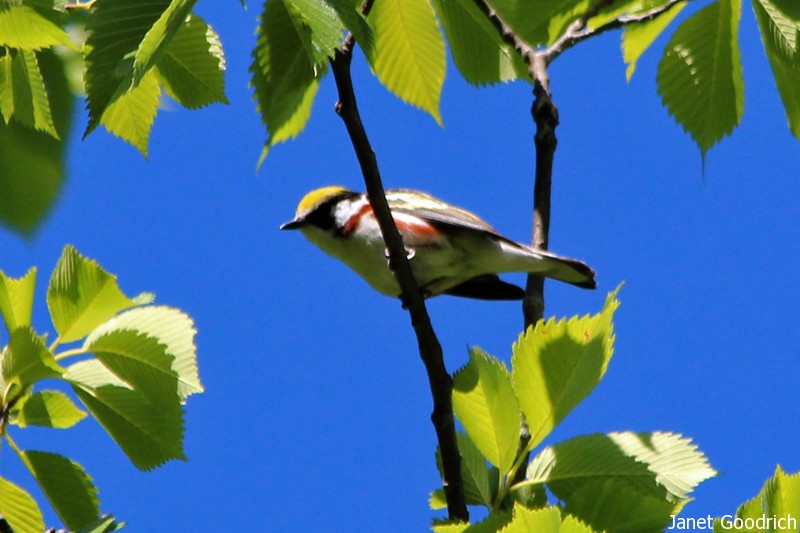-
Gold Drop
I’ve already posted several pictures of these yellow warblers. But they’re so beautiful, I can’t resist one more.
Or, maybe, several more.
-
Bird lists and new pics
Migrating birds seen since April:
- Yellow warbler
- Chestnut-sided warbler
- Black and white warbler
- Yellow-rumped warbler
- Blue-gray gnatcatcher
- Palm warbler
- Blue-winged warbler
- Ruby-crowned kinglets
- White-crowned sparrows
- Magnolia warbler
- Black-throated green warbler
- American redstart
Heard but not seen:
- Prairie warbler
New returnees:
- Chipping sparrow
- Brown thrasher
- Robin
- Gray catbird
- Red-winged blackbird
- Baltimore oriole
- Eastern towhee
- Rose-breasted grosbeak
- Eastern phoebe
First sightings in 2013:
- Field sparrow (this bird has a beautiful song!)
- Veery
- Oven bird
- Several of the warblers listed above: black and white, blue-gray gnatcatcher, ruby-crowned kinglet, black-throated green
- Red-breasted nuthatch
I’d love to see:
- Blackburnian warbler
- Parula warbler
Here are some photos from an early morning walk today with my 12-year-old. We’d talked about it yesterday, but since she was up late I decided not to wake her up. She got up early anyway and came out to the kitchen raring to go!
She got the best pictures of the black-throated green warbler using the Canon SX 130IS I used before my husband blessed me with a Canon Rebel last Christmas. My auto focus would NOT focus on this fellow!

Photo courtesy of my daughter. Here are my photos of things we saw.
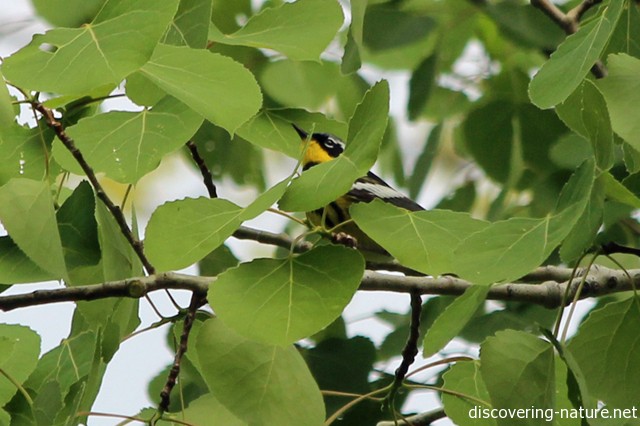
Magnolia warbler 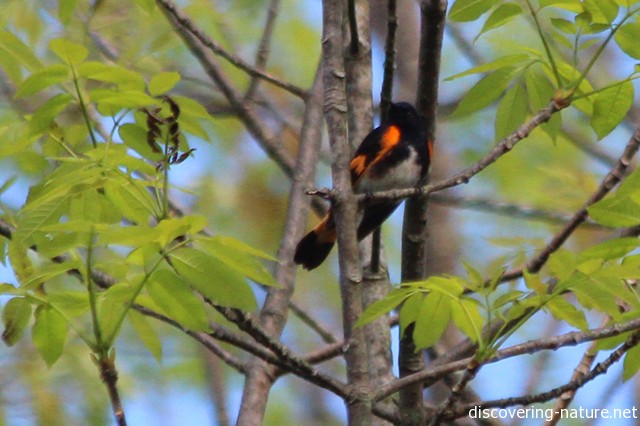
American redstart 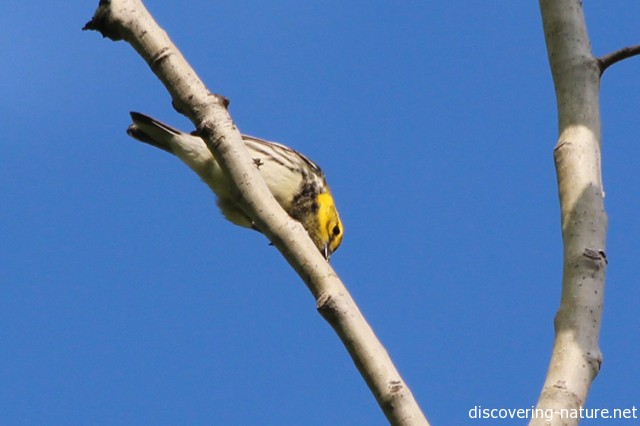
Black-throated green warblers Also seen: oven bird, towhee, yellow warbler, blue wing, chickadee, catbird, brown thrasher, white-tailed deer.
-
Woods wonders
We saw an unprecedented five hawks in the woods yesterday. Two were Cooper’s hawks, flying together — a sobering reminder that all these beautiful spring warblers are in a daily fight for survival.
Along with the yellow warblers and blue wings, chestnut-sided warblers were working the treetops.
I heard but never saw a prairie warbler. (I even resorted to standing in a meadow with my phone, playing the recording of this warbler’s call from the All About Birds site… That was a first!)
There were two Eastern towhees digging in the leaves, rising briefly from time to time to send out their loud “Drink your tea!”
Why isn’t it in better focus? Bummer. I think it’s because I was using the hood in a spot where the sun wasn’t particularly bright. Such a beautiful bird, and I’ve been trying to get a picture for a few weeks now. Oh well.
There is a brown thrasher in the same area. He’s a rich cinnamon color and I just love to hear him, but he doesn’t pose for pictures. Last year I got a good one, though. This year the catbirds are the ones posing for pictures as they chatter in the bushes.
Once you see something once, it has a way of being visible again. So it is with oven birds. Before this year I never saw even one; now I’ve seen several.
I wanted to warn him to hush; there were hawks about. I’ve read that only 50% of oven birds survive. But he vanished into the leaf litter.
The dogwood and red trillium are blooming. The latter isn’t very prevalent, but I saw a few plants. There were lots of dogwood blooms illuminating the woods.
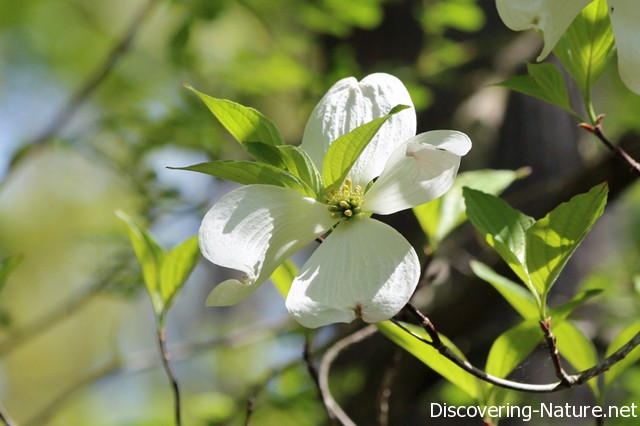
Dogwood 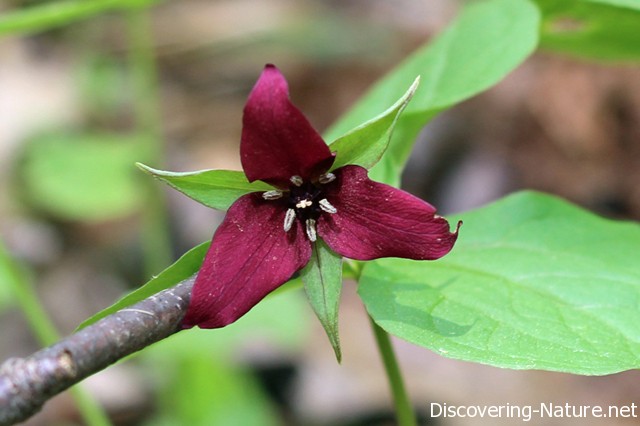
Trillium 3 leaves, 3 sepals, 3 petals. This one’s drooping bloom is propped by a twig so I could snap my photo. Red trillium is also called wake robin — a wonderful, suggestive name that alludes to another favorite herald of spring.
-
Black and white warblers, take 2
My daughter and I saw this little, streaky bird against streaky bark yesterday. I’d glimpsed one last week, but it didn’t stay around long. This time there were a pair of them working in a birch tree, along with a red-eyed vireo that insisted on staying hidden in leaves most of the time.
I was glad we got a better look this time! They’re so small that at first sight they’re just a movement out of the corner of your eye.
They worked their way up and down the tree harvesting insects.
I remember reading that chickadees have many more receptors in their eyes than we do, so when they see bark, it’s a rich, insect-encrusted feast. These warblers must be the same way. They seemed to find plenty to keep them there, though personally I never saw a bug.
-
Celebrating Seeing
My daughters and I watched this pileated woodpecker in our back yard as we were eating lunch the other day. She captivated us for several minutes.
No sooner had she flown away than a rabbit appeared, gathering up mouthfuls of grass and leaf litter and hopping behind some trees to pad her nest. Now we know where to look for baby rabbits.
On the whole, this raised awareness of the creatures living all around us is the biggest plus of nature study. Who needs television if you have a window? Who needs computer games if you have eyes? The interest is simply there; all that’s needed is a very little effort to cultivate awareness.
It’s not always easy to be aware, though. Sometimes it brings sorrow. This year I notice several different areas around where bulldozers have cleared space for some kind of development, and every one of them will have an impact on birds or other creatures that lived in those spaces. Where will they go? And how much more space do humans need to take over, mow down, dig up?
Even something like Habitat for Humanity (which recently produced a house on an empty lot nearby) gives me pause these days. It sounds so positive. And it is positive to give someone an opportunity to help build their own home. But why take up new space to do it? Why not redesign an existing building standing empty? Every city has more than enough houses already, more than enough retail buildings and factory spaces. Why not use and re-use these spaces, rather than relentlessly sprawling outward like some seeping toxic spill?
Oh well… enough of the lament. Suffice it to say that I wish we gave more thought such matters before mowing down the bushes and trees to construct new buildings. Awareness — the ability simply to pay attention to what’s around you, wherever you are — is where an environmental ethic begins. Not legislation or speech-making. Opened eyes.
Speaking of which, I have seen many interesting sights of late that I haven’t recorded here, and what follows will be a long column of wonders.
Starting with an oven bird! I’ve heard these leaf-like thrushes many times calling from the forest floor, but never have I been fortunate enough to actually see one till this past weekend, on an early morning walk.
He was having a territorial squabble with another one nearby. The woods were full of them! Here, he’s standing on the ruin of an old nesting box.
At a nearby pond, we’ve seen the first of the green herons…
We’ve seen geese nesting…
…and geese newly hatched.
As I stood watching, I noticed movement from one grass tussock to the next. Meadow mice were darting like lightning from hole to hole, right out in the marsh. They’re the color of dust, but otherwise they remind me a lot of hamsters.
Water snakes abounded. None of them looked big enough to eat a mouse, but the frogs and wogs must be on the run.
I think this tiny butterfly is a silvery blue. Its wings are only about a centimeter wide. The meadow was studded with them; I also saw one bright orange butterfly too elusive to photograph.
The chipmunks are coming out of hiding — well, they’re awake. Some are still hiding.

Find that chipmunk Others look like woodland mariners sailing deadwood ships.
Happily, my daughter and I saw our first rose-breasted grosbeaks the other morning!
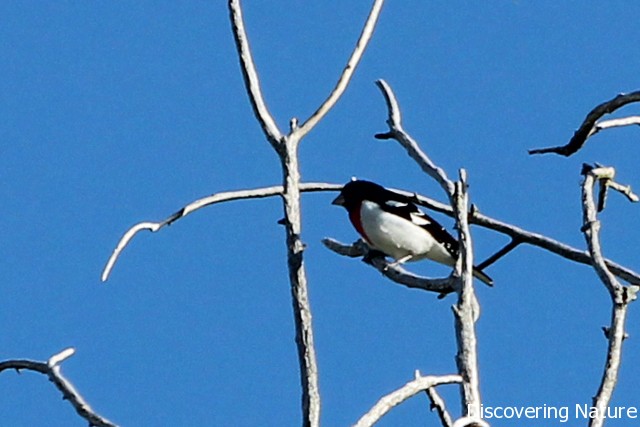
Mr Grosbeak 
Mrs Grosbeak There were other birds chorusing all around, including song sparrows…
…and yellow warblers.
It’s not every day that you get tracked by police while bird watching, but it happened the morning we saw these warblers. My daughter turned around, gasped, and said, “A police car!” We saw an officer circling our parked car and hurried back, fearing we’d broken some parking rule. “Oh, I was going to have her track you,” he greeted us, emerging from behind the car with a large police dog. Turns out he just saw our car and decided to take the opportunity to do some training!
There are several nests we’ve been keeping an eye on. We were thrilled to discover a red-tailed hawk nest in a spot we pass often, but it’s not terribly photographable. Still, as the nestlings grow and begin flappercizing, maybe we’ll get some better views (and pictures).
The other day, we were looking at a red-winged blackbird atop this snag when we noticed a tree swallow in a nest cavity beneath him.
Last but not least, the chickadees must have a few nestlings in this nest box outside our front window, because the parent birds have been active, flying to and fro and apparently feeding young.
It’s a great time of year for being outside. Here in the northeast the sense of release from the grip of winter seems so strong and so welcome.
Even our domestic animals like to get out and smell the flowers!

Whisper -
Blue-winged warbler
This little fellow sounds exactly like he’s spluttering out a raspberry. He makes sort of a buzzing, raspy call. But what a glorious warbler! This is the best view of one I’ve ever gotten. He appeared to be studying me and the girls, too!
-
Black and white warbler
I saw another new-to-me warbler yesterday morning. It was on the border between a conifer woodland and a more open area of woodland. My pictures aren’t very good as photography, but as a record of the sighting I value them. This tiny bird was moving so quickly that I felt fortunate to get any picture at all!
-
Yellow-rumped Warblers
These little birds always appear to be looking up, thanks to the white outline below their eyes. They’re around now, but most of the times I’ve seen them they’ve been up high.
Last year they appeared down low in the bushes once, and I got some good pictures. This one is still my favorite.
-
Yellow Warbler
-
Palm Warbler
This morning it was 37 degrees and overcast. The very last thing I would have expected was to see a warbler. Second-to-last would be sunshine.
I saw both!
This was probably my most successful photo shoot ever, because I was actually patient. I didn’t get up and move around trying to get closer to the bird. It meant waiting awhile and experiencing some of the other pleasures of being there — birdsong, a pileated woodpecker laughing, ducks. It also meant this little bird was not disturbed and didn’t change its normal activity as a result of my intrusion.
In fact, I’m pretty sure it took a bird-nap at one point. Its tail stopped flicking and it sat still for perhaps five minutes. That’s pretty relaxed!
I didn’t get any good pictures of palm warblers last year, so this is a great start to the spring warbler season.
In a separate jaunt today with my husband and the girls, we saw ruby-crowned and golden-crowned kinglets and a possible red-tail’s nest to monitor. All in all it was a great day!


